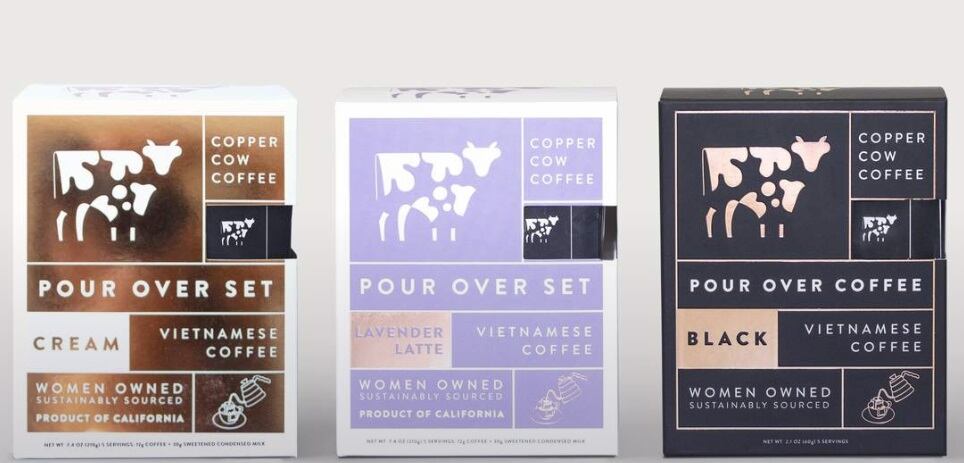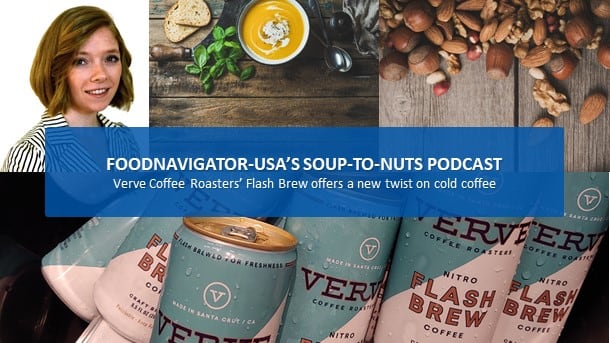Since Debbie Wei Mullin launched Copper Cow Coffee two years ago, the company’s single-use, portable pour-over Vietnamese coffee has been “relatively successful in retail” by securing shelf space in more than 3,000 stores. But, she added, “we are seeing much faster growth now that we have turned to online, where there is a lot more real estate in terms of imagery and videos to help people understand how the product works and its benefits” compared to more traditional coffee formats such as bulk bags or single-use pods.
She says the brand also has seen success through other non-traditional routes, such as hotels and offices, where consumers can take their time to explore the brand’s unique single-use pour-over format, which appears at first glance to be a larger than normal tea bag, but instead of a string at the top, it has paper handles that pull out from the sides to rest on the lip of the cup and hold the contraption above the cup’s fill line.
“We found that people can actually try the product when they first interact with the brand … it helps propel their understanding,” Mullin said. “In a retail setting, on the other hand, we are just kind of a box with coffee and it is a little confusing. In the other settings, people can really discover Copper Cow Coffee and they are so happy to open it, pour it and try it and experience how it is a far superior experience to our competitors.”
Mullin also notes that ecommerce helps take the sting out of the brand’s higher price point. She explained the retail price can drop to as low as $1 a cup if purchased through a bulk subscription, which is equivalent to Nespresso and disposable pods. On store shelves though, the product is sold in smaller quantities, make it more expensive, which in turn is more noticeable when it is side by side with bagged coffee or other less premium and less expensive options.
Subscription services create an ongoing dialogue with consumers to test innovation
The online subscriptions also create an opportunity for ongoing dialogue with consumers, which Mullin says is helping the company fine-tune the product, marketing and future extensions.
“What is great about the single serve format is that because consumers are not buying a bag of coffee, we are able to send them samples of another roast, such as dark if they are buying light or of our lavender coffee, which includes fresh lavender in the pouch,” or when the company launched its all-natural shelf stable creamer made only of milk and sugar, she said.
“We are planning to come out with more flavors and innovations … like a coconut version of our creamer for people who are vegan or lactose intolerant, and being able to have a subscription allows people to interact with the brand more fully, tell us what they think, and of course get a really great price,” she said.
She added that the key to a successful subscription that really thrives is to offer something that excites, surprises and delights consumers, so that they look forward to each shipment.
“People love the discovery every month and being able to try something new,” she said.
Given the initial success of the ecommerce and subscription service, Mullin says the company will focus on expanding distribution through those channels in 2019. It also will continue to test the water for more partnerships at hotels and offices through 2020.
“Beyond that, I’d love to open a brick and mortar café because I just like I think the subscription is a really great way to test something new, a café would be an even greater testing ground where we could sample single origin coffees that are more limited,” she said.




